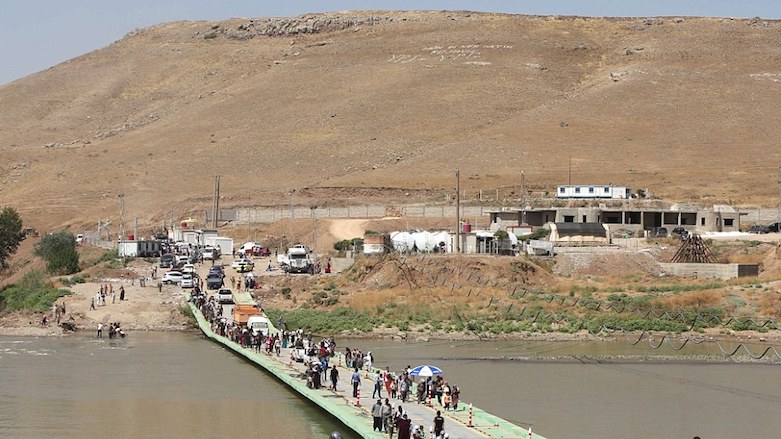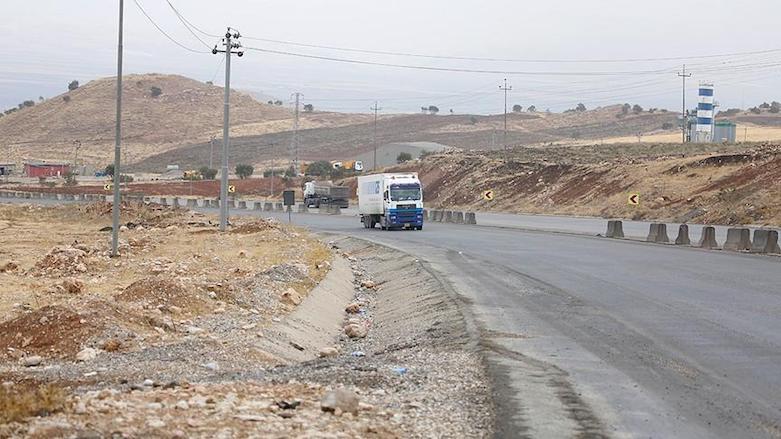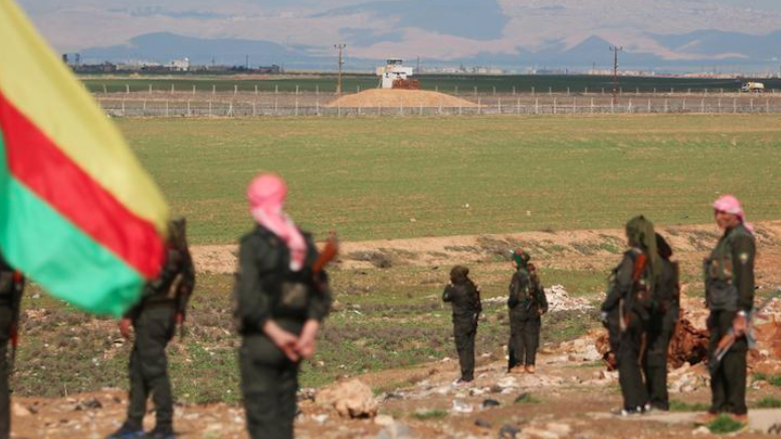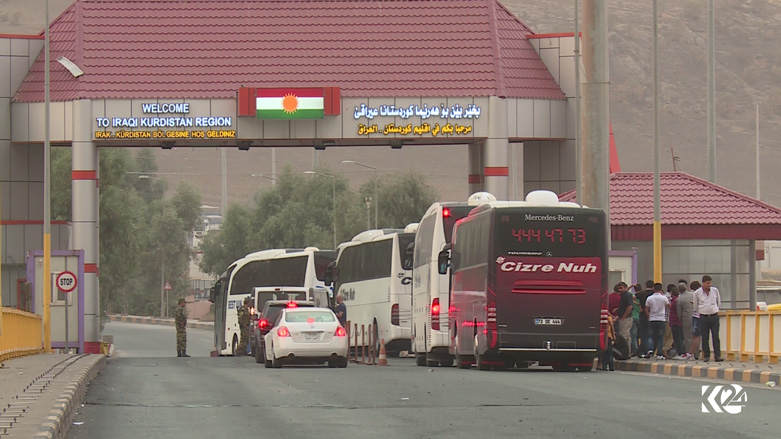Turkey awaits Iraqi 'move' to open border crossing where Iranian-backed militias attack

ERBIL, Kurdistan Region (Kurdistan 24) – Ankara was waiting for Baghdad to capture a Turkey-Iraq-Syria border tripoint from the Kurdistan Region to open a new commercial crossing there, the Minister of Customs and Trade Bulent Tufenkci said on Thursday.
As Tufenkci spoke to the state-funded Anadolu Agency, Kurdish security sources reported a massive attack on the Peshmerga positions launched by the Iraqi army and Iranian-backed Popular Mobilization Forces (PMF) toward Peshkhabour (Semalka) in the northwest of Mosul, near the border with Syria and Turkey.
Both Baghdad and Ankara have been looking for an alternative border crossing that would bypass Kurdistan to isolate it further and impose economic sanctions as a punitive measure against the Region for holding an independence referendum last month.
The entirety of Turkish goods worth tens of billions of dollars shipped to Iraq goes through the Ibrahim Khalil border gate, also known as Khabour, in the Kurdish town of Zakho.
Instead, earlier this month, Turkish Prime Minister Binali Yildirim proposed the opening of a new gate in Ovakoy, west of the currently-used Ibrahim Khalil, where his country’s border meets with that of Syria and Iraq.
Tufenkci said Ovakoy was on the agenda during Wednesday’s meetings in Ankara with the Iraqi Prime Minister Haider al-Abadi and his Turkish counterpart Yildirim as well as President Recep Tayyip Erdogan.
“We saw that the Iraqi central government is eager on this issue. Security must be maintained. There could be [resistance] from the PYD/PKK, Da’esh, and Peshmerga,” he said.
The minister was using an Arabic acronym for the Islamic State (IS) which has no presence in the area solely controlled by the Peshmerga.
Across the border in Syria, the Democratic Union Party (PYD), which Turkey maintains is a branch of the Kurdistan Workers’ Party (PKK), rules the de facto Kurdish-led autonomy known as Rojava.
An Iraqi capture of the tripoint would bring an end to the geographic unity of the two Kurdish entities of the Kurdistan Region and Rojava.
Such a blow to both could also affect the US-led coalition which, despite fierce opposition from Turkey, supplies arms and vehicles to Kurdish-dominated forces fighting IS in Syria through Peshkhabour.
Editing by Karzan Sulaivany



